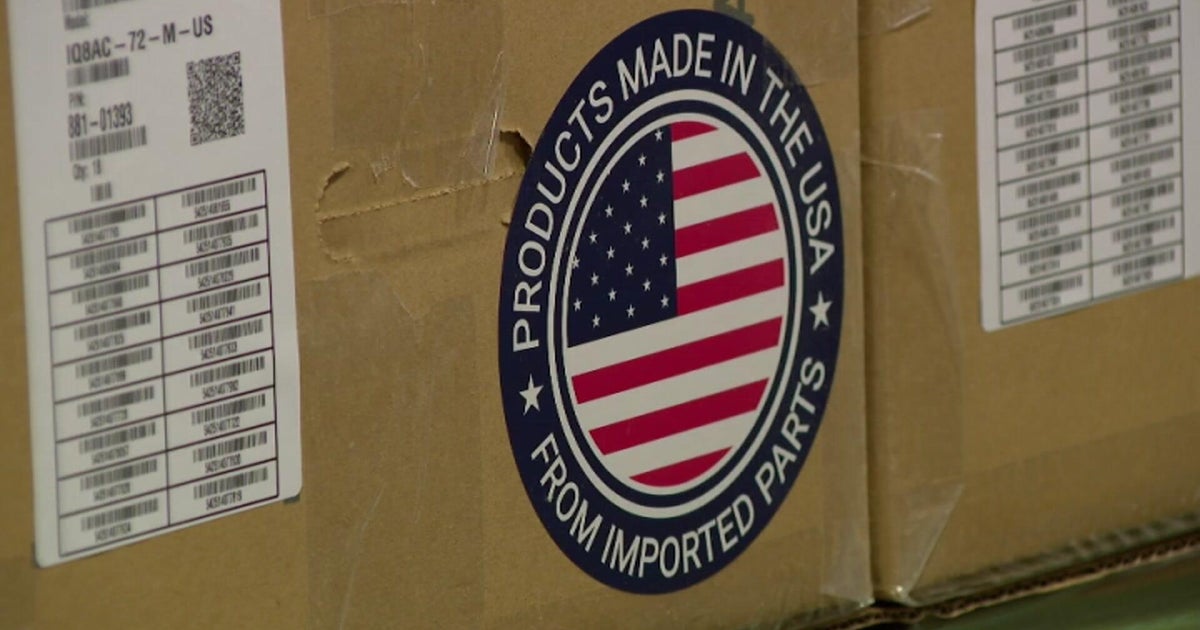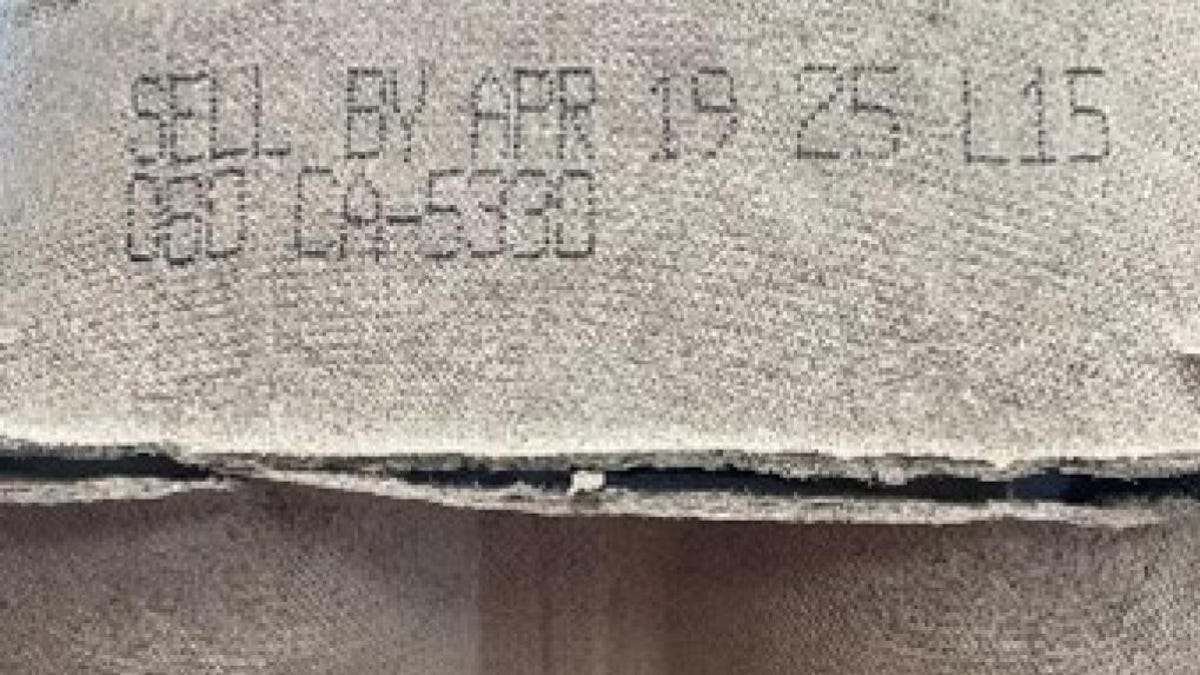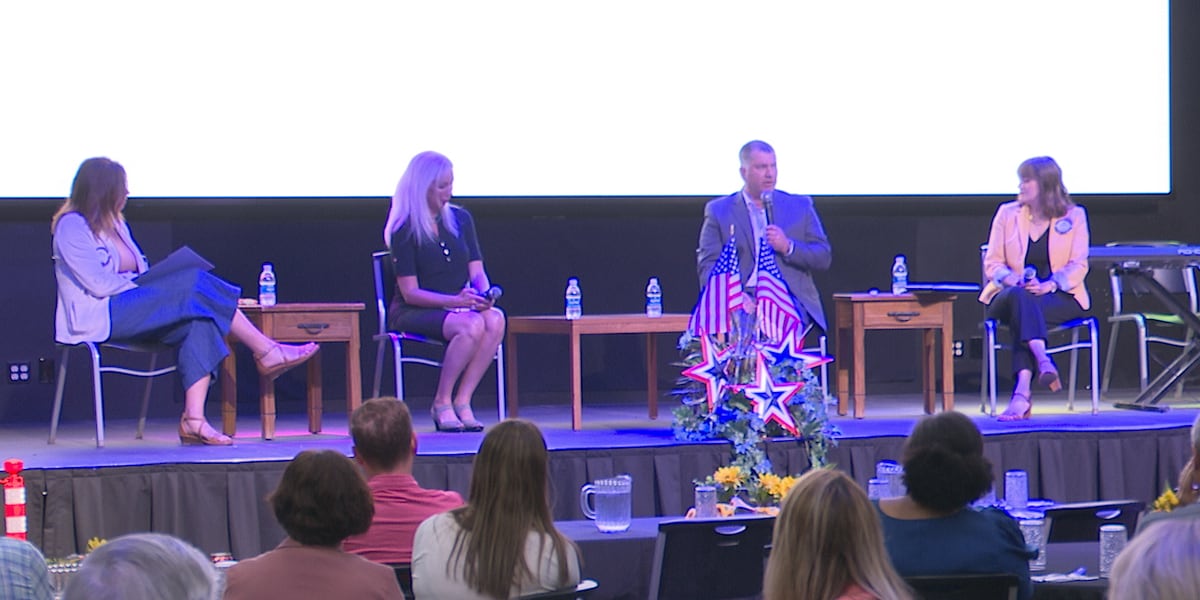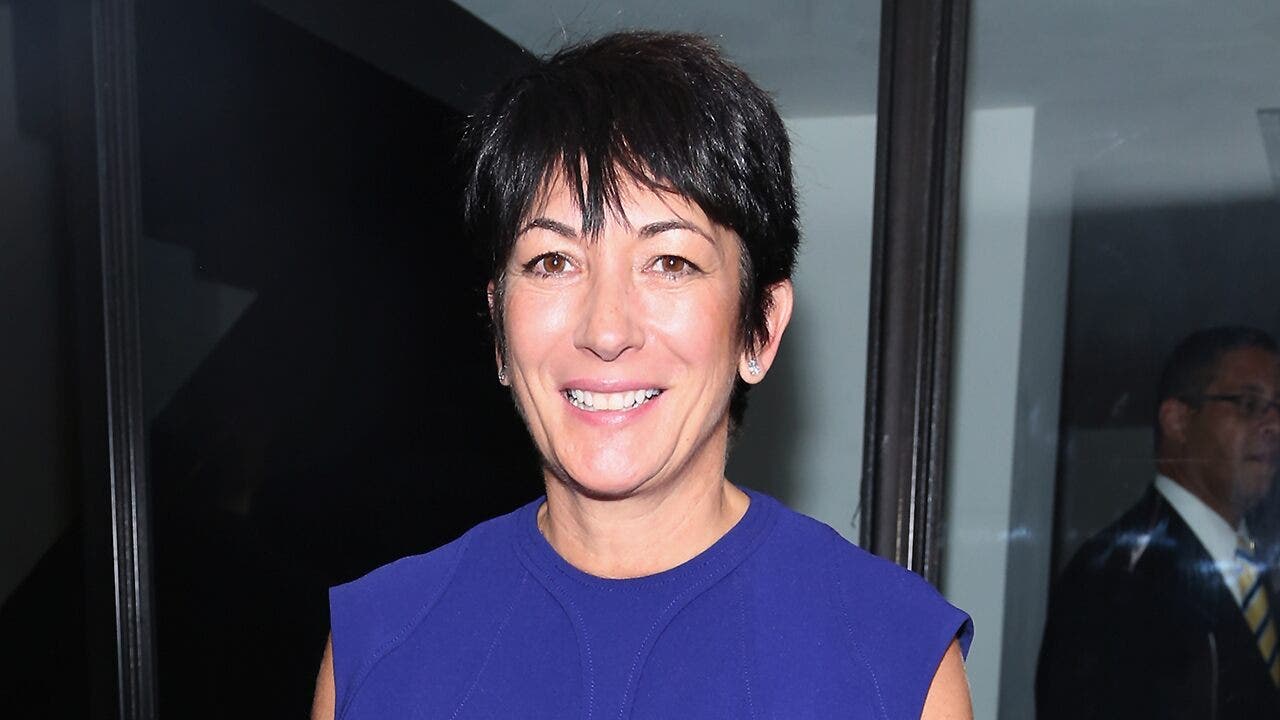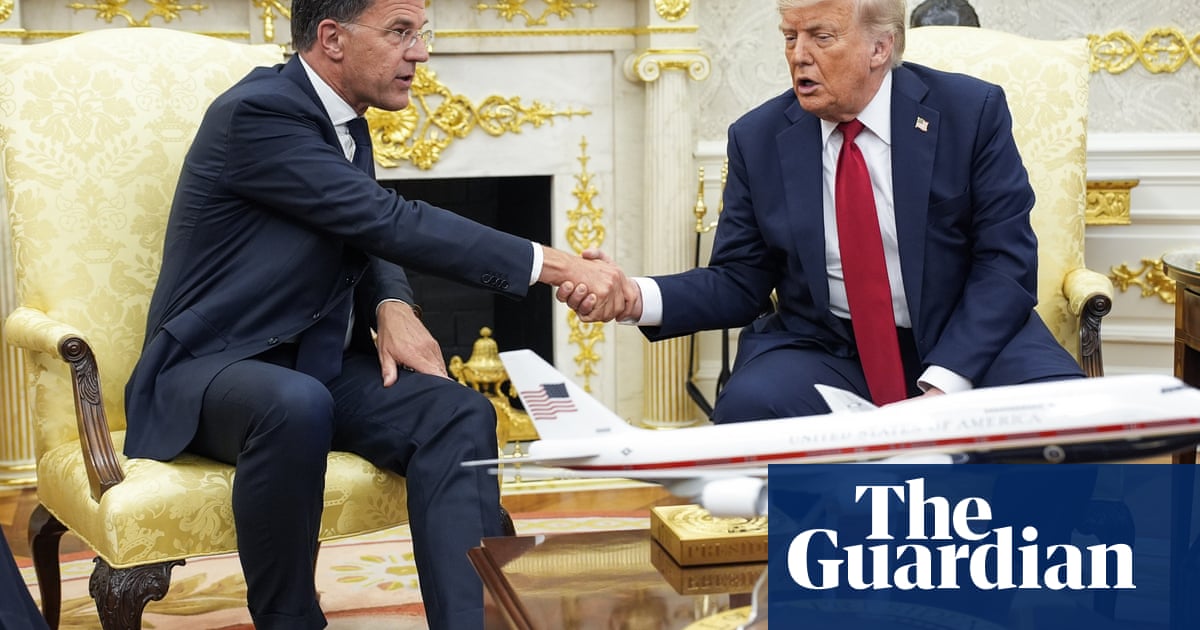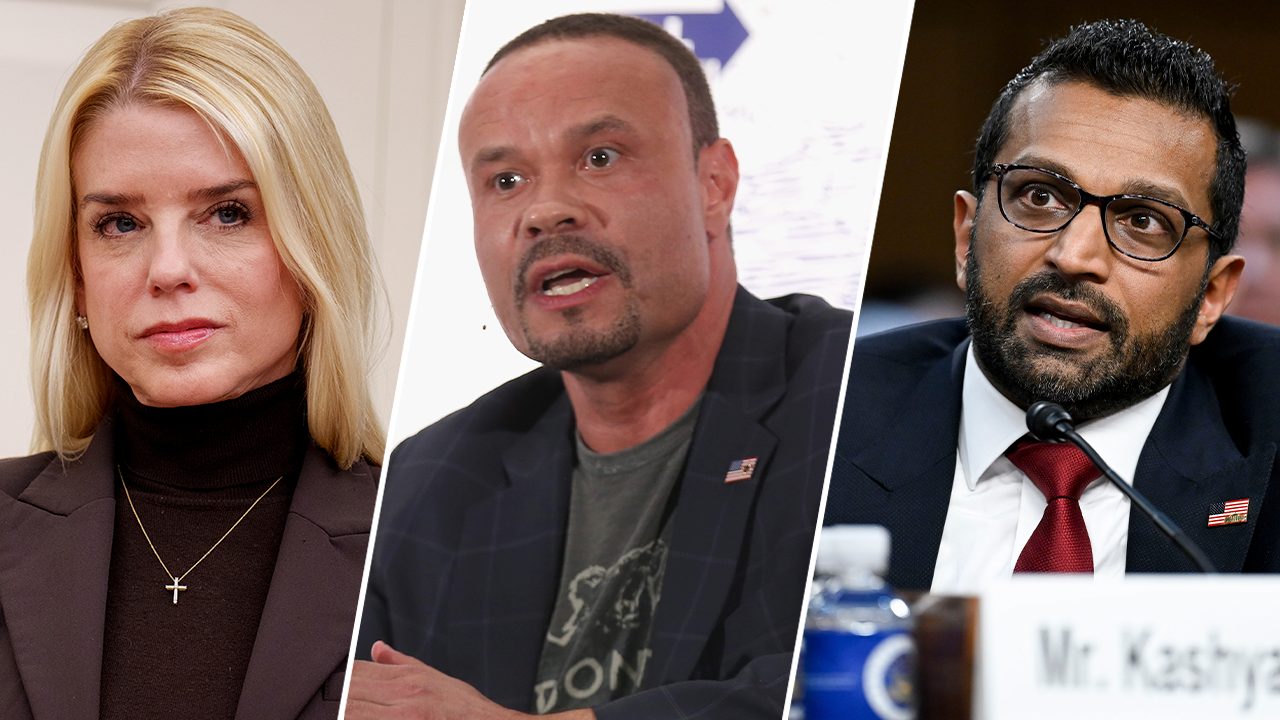World
EU countries fail to agree on 10-year extension for glyphosate use

EU member states have failed to agree on the European Commission’s proposed 10-year renewal for the use of glyphosate, a controversial chemical substance used in herbicides.
Several member states, including France, abstained in a vote on Friday in the Standing Committee on Plants, Animals, Food and Feed (PAFF), following two-day technical discussions in Brussels.
Austria, Luxembourg, and Croatia voted against the proposed extension.
With no qualified majority either for or against, an appeal committee will now reconsider the Commission’s text, with a second vote due to take place in the first half of November.
A spokesperson for the European Commission confirmed on Friday that “dialogue” can still take place between member states in order to reach a compromise. Many capitals have expressed concerns about the powerful herbicide’s impact on biodiversity and human health.
If a qualified majority is not achieved in November, the Commission will take a final decision on the renewal.
In September, the EU executive recommended renewing the approval of glyphosate use in the EU market for a further 10 years beyond its expiry date of 15 December this year, after the bloc’s food safety agency EFSA found “no critical areas of concern” in a July assessment.
But EU officials recognised that the EFSA analysis included data gaps and had failed to reach conclusions on certain aspects, including for consumer diets.
Glyphosate has been a source of controversy since the World Health Organization’s cancer agency concluded in 2015 that it was probably carcinogenic to humans.
Earlier this week, Euronews spoke to Sabine Grataloup, whose son Théo was born with severe malformations after he was exposed to a glyphosate-based weed killer while in his mother’s womb.
In an attempt to convince member states, the European Commission had sought to introduce “risk mitigation measures” including buffer strips of ten meters around sprayed areas and the use of specific nozzles to reduce “spray drift”.
NGO Pesticide Action Network (PAN) Europe, which had fiercely criticised the Commission’s proposed renewal, welcomed member states’ decision to delay the decision.
“We consider that it (the Commission’s proposal) doesn’t take into account all the scientific evidence that we have that glyphosate harms human health and the environment and that therefore under EU law it should be banned,” Angeliki Lysimachou, PAN Europe’s head of science and policy, told Euronews.
“The fight is not over yet, but there is a deadline,” Lysimachou said. “The Commission and Europe have made a commitment to reduce dependency on pesticides and to adopt alternative methods such as more nature-based and environmentally friendly solutions. An extension of glyphosate for ten years is really worrying.”
Austria and Luxembourg had previously announced they would oppose the renewal. Luxembourg is the only EU country to have temporarily banned the substance in the past.
The Dutch Agriculture Minister Piet Adema had confirmed the Netherlands would abstain in the vote, explaining its “nuanced position” would not be “done justice by a vote for or against” the proposal.
In September, the German agriculture minister warned of the threats of glyphosate to biodiversity and stressed the need for a coordinated phase-out at European level.
Italy voted in favour of the 10-year extension on Friday but with some conditions, including the prohibition of glyphosate use during harvest collection, according to diplomatic sources.

World
Video: Trump Gives Russia 50 Days to Make Peace With Ukraine

new video loaded: Trump Gives Russia 50 Days to Make Peace With Ukraine
transcript
transcript
Trump Gives Russia 50 Days to Make Peace With Ukraine
President Trump, expressing frustration over feeling dragged along by President Vladimir V. Putin in peace talks, threatened Russia with “very severe tariffs” unless a deal is reached with Ukraine in 50 days.
-
“We’re very, very unhappy with them and we’re going to be doing very severe tariffs if we don’t have a deal in 50 days. Tariffs at about 100 percent. You’d call them secondary tariffs. You know what that means. And I’m disappointed in President Putin because I thought we would have had a deal two months ago. But it doesn’t seem to get there. We’ve made a deal today where we’re going to be sending them weapons and they’re going to be paying for them.” “This is really big. This is really big. You called me on Thursday that you had taken a decision. And the decision is that you want Ukraine what it needs to have to maintain, to be able to defend itself against Russia, but you do want the Europeans to pay for it, which is totally logical.”
Recent episodes in Ukraine Crisis
World
Iran vows retaliation if UN Security Council issues snapback sanctions on anniversary of nuclear deal

NEWYou can now listen to Fox News articles!
Iran on Monday warned that it would retaliate if the United Nations Security Council (UNSC) took steps to impose “snapback” sanctions as nations mull further action to halt Tehran’s nuclear development.
“The threat to use the snapback mechanism lacks legal and political basis and will be met with an appropriate and proportionate response from the Islamic Republic of Iran,” Foreign Ministry spokesperson Esmaeil Baghaei claimed during a press conference, according to a Reuters report.
Baghaei did not expand on how Iran would retaliate, but his threats come amid repeated warnings from security experts that time is running out to enforce the sanction mechanism by Oct. 18 under terms dictated by the 2015 nuclear deal.
Esmaeil Baghaei, Iran’s foreign ministry spokesman, speaks during a press conference in Tehran and warns of retaliation if the U.N. issues snapback sanctions, on July 14, 2025. (Atta Kenare/AFP via Getty Images)
IRAN CLAIMS ITS PRESIDENT WAS INJURED IN ISRAELI AIRSTRIKE LAST MONTH
The comments coincided with the 10-year anniversary of the Joint Comprehensive Plan of Action (JCPOA), which was originally intended to halt Iran’s nuclear ambitions, but which some have argued was insufficient to adequately deter Tehran.
Under the terms of the JCPOA, any signatory can unilaterally call up snapback sanctions if Iran is found to have violated the terms of the agreement.
Though the U.S., which, alongside the U.K., France, Germany, China and Russia, signed the 2015 deal, was deemed by the U.N. and other JCPOA members unable to utilize the mechanism after Washington withdrew from the agreement in 2018 during President Donald Trump’s first term.
Despite repeated calls by the U.S. to enforce snapback – which would legally enforce all 15 U.N. members on the council, including Russia, to reimpose sanctions on Iran – no one on the UNSC or JCPOA has yet taken steps to enforce the sanctions.
“I would say one of the few good things about the JCPOA is that it reverse engineers the veto in the sense that you really only need one of the permanent members to be able to do this,” Behnam Ben Taleblu, senior director of the Foundation for Defense of Democracies’ Iran orogram told Fox News Digital. “But why is no one doing it? It’s because it’s a risky move.
“I think it’s a worthwhile move, but we have to be honest – it’s a risky move,” he added.
Ben Taleblu explained that Iran’s most likely response to the severe sanctions under the snapback mechanism would be its abandonment of the Treaty on the Non-Proliferation of Nuclear Weapons (NPT) – an international agreement that over 190 nations have signed, pledging either not to transfer weapons to another recipient by nuclear-capable nations, or not to develop atomic arms by non-nuclear nations, among other commitments.
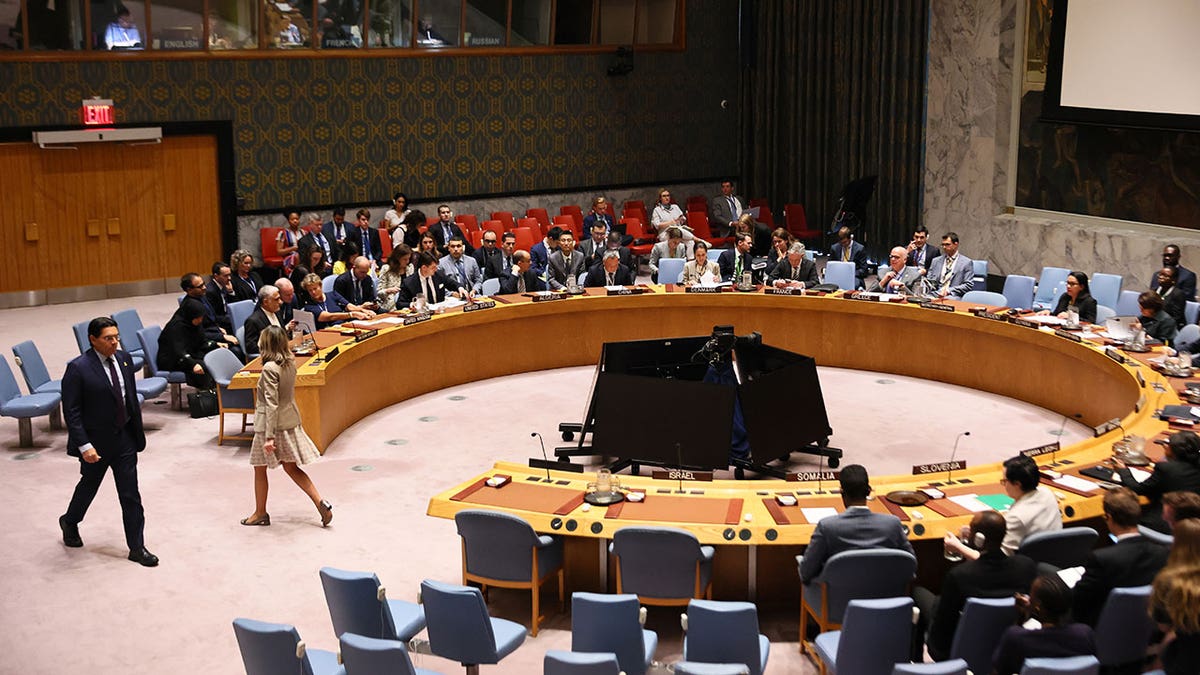
Members of the Security Council attend a meeting on threats to international peace and security at the United Nations on June 13, 2025, in New York City. (Michael M. Santiago/Getty Images)
TIME IS RUNNING OUT TO STOP IRAN FROM MAKING NUCLEAR BOMB: ‘DANGEROUS TERRITORY’
The terms of the agreement are monitored by the U.N.’s International Atomic Energy Agency – which Iran has already suspended cooperation with following U.S. and Israeli strikes against its nuclear program last month.
“In a world in which Iran’s most likely response is to leave the NPT, one has to be confident in at least the ability of military threats to deter Iran further, or at least the credibility of America’s and Israel’s, or the international community’s, military options against Iran moving forward,” Ben Taleblu said.
“The problem is the lack of a game plan. Has America provided Europe with a game plan, a road map for post-snapback?” he added, noting there needs to be a much larger strategy for next steps should sanctions be reinforced.
Though the U.S. assesses that Iran’s nuclear program has been stunted by up to two years, experts remain convinced that Tehran’s atomic ambitions have not been deterred, and its ties to terrorist networks and adversarial nations mean it remains a top security concern.
Trump has said he is still committed to negotiating with Iran on its nuclear program, though questions remain over how long he will continue to allow negotiations to drag out before a European nation like the U.K., France or Germany must step in to enact snapback sanctions not only before the October deadline, but before Russia takes over control of the UNSC presidency that month.
Pushing through the snapback mechanism is expected to be a roughly six-week process.

A banner depicting Iran’s Supreme Leader Ayatollah Ali Khamenei is placed next to a ballistic missile in Baharestan Square in Tehran on Sept. 26, 2024. (Hossein Beris/Middle East Images/AFP via Getty Images)
Reports on Sunday suggested that German Chancellor Friedrich Merz could call up the snapback measures as soon as Tuesday, and U.S. Ambassador to Israel Mike Huckabee championed the move in a post on X.
But Fox News Digital could not independently verify these claims and the German Foreign Ministry told Israeli news outlet JNS that the claims were incorrect.
The chancellor’s office did not immediately respond to Fox News Digital’s questions.
World
Why are Afghan refugees being sent back to Taliban rule?

Afghans who fled decades ago are now being forced back to Taliban-ruled Afghanistan as Iran, Pakistan, or the US turn their backs on them. With refugees who were once promised safety now being deported into crisis, why are these countries choosing to abandon them, and what does this reveal about the state of asylum worldwide?
-

 Politics1 week ago
Politics1 week agoVideo: Trump Signs the ‘One Big Beautiful Bill’ Into Law
-

 Education1 week ago
Education1 week agoOpinion | The Ugliness of the ‘Big, Beautiful’ Bill, in Charts
-

 World1 week ago
World1 week agoRussia-Ukraine war: List of key events, day 1,227
-

 News4 days ago
News4 days agoVideo: Trump Compliments President of Liberia on His ‘Beautiful English’
-

 Technology1 week ago
Technology1 week agoCyberpunk Edgerunners 2 will be even sadder and bloodier
-
Business1 week ago
Companies keep slashing jobs. How worried should workers be about AI replacing them?
-

 News1 week ago
News1 week agoTexas Flooding Map: See How the Floodwaters Rose Along the Guadalupe River
-
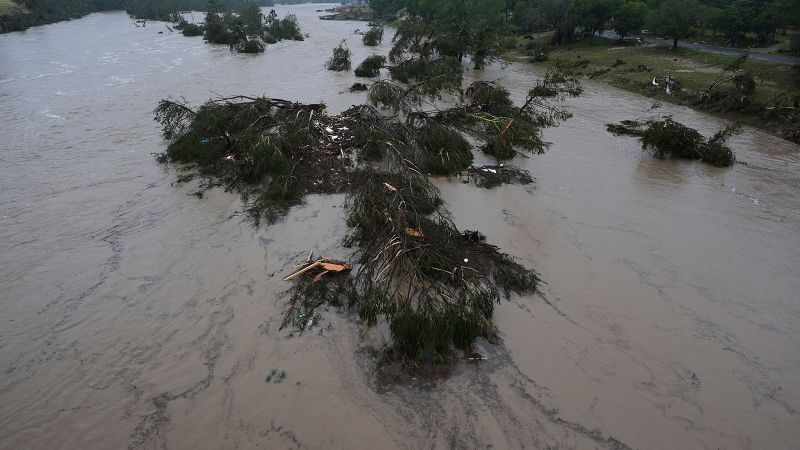
 News1 week ago
News1 week agoDeath toll from Texas floods rises to 24 as search underway for more than 20 girls unaccounted for | CNN
